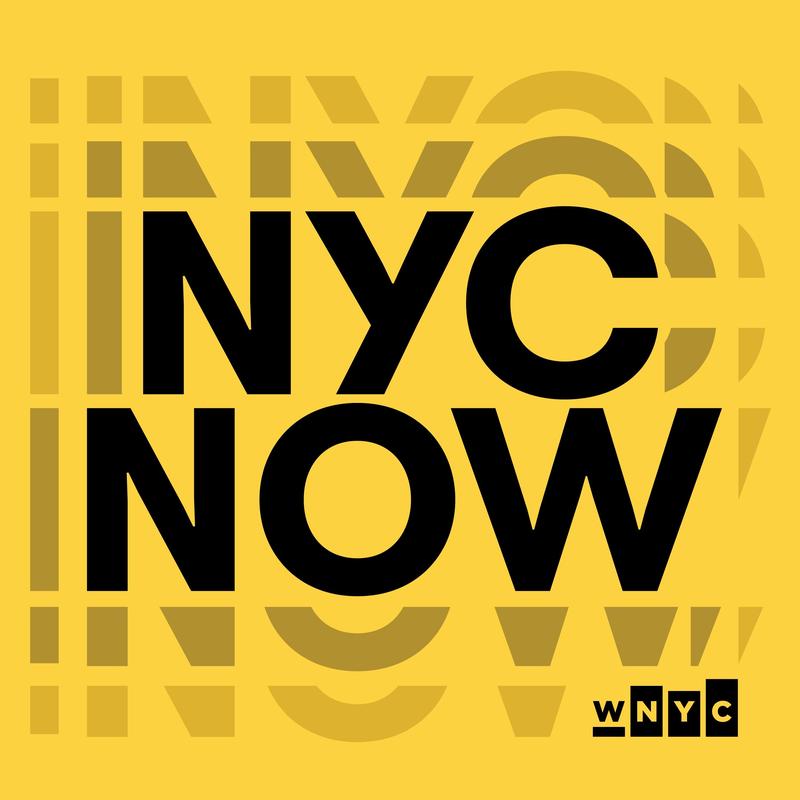Columbia University Suspended Student Who Built AI Cheating App, so He Dropped Out and Raised $5.3 Million for Startup

Roy: I'm Roy. I got kicked out of Columbia University for building a tool to cheat on LeetCode-style technical interviews, and now I'm building a tool to cheat on everything using AI.
[music]
Janae Pierre: From WNYC. This is NYC Now. I'm Janae Pierre. Happy Saturday. Quick question for you. If you build an app to help people get ahead, does that make you a visionary, or a cheater? WNYC's Ryan Kailath recently reported on a Columbia University student, who was suspended after creating an AI-powered app that helps users ace job interviews, and now Silicon Valley investors have poured millions into the app, and its creator, Roy Lee.
Roy: I literally don't know a single person at Columbia, at least, in the undergraduate school, who has not used AI on an assignment before. What you think is deception today is just going to be normal tomorrow, and the sooner you embrace it, the sooner society can adapt and evolve.
Janae Pierre: Now, Ryan talked with him about why his invention sparked such different reactions, and what that tension reveals about how colleges handle innovation when the rules haven't quite caught up. All right, Ryan, tell me the truth here. Did you use AI for this story?
Ryan Kailath: I did.
Janae Pierre: [laughs]
Ryan Kailath: I'll tell you about what I did at the end.
Janae Pierre: Okay, yes, we'll save that for later. What can you tell me about Columbia student Roy, and his friend/classmate. Who are they?
Ryan Kailath: Yes, so Roy transferred into Columbia as a sophomore last fall, and knew that when he got to school, what he really wanted was to find a co-founder and a wife. He said, "This is the value of an Ivy League." He immediately finds a guy who shares his vision, a junior in the engineering school named Neel Shanmugam, and they decide, "We're going to build a company."
In the tech world, where these guys work, there's a very normalized thing in the interview process, where you do all these coding tests live in front of your interviewer, because they want to see how you think. How would you code this little thing? It's almost like an SAT, or another standardized test. Roy said he had spent 600 hours training for these, in order to be able to do these interviews, but then he thought, "Oh, what if we build a company that helps you cheat on these tests with AI?"
He wouldn't really call it cheating. He would just say, "Making the system more efficient," but that's what he did. Roy built this tool that sits undetectable on your computer, while you're in a job interview, and lets you use AI on the coding problems, but his real innovation was, "Okay, I've built this cool tool that a lot of people in the tech world will want to use, but it's not going to work, unless we can go viral with it."
Roy: Guys, this is Roy from Interview Coder. Today, I'll be showing you how it works on a real Amazon OA.
Ryan Kailath: He filmed himself using his tool to land internships at all the top companies.
Janae Pierre: Wow.
Ryan Kailath: He got offers from all of them. He posted it, and blew up.
Janae Pierre: All right, that's pretty clever, so tell me, why was Roy suspended?
Ryan Kailath: Yes, so Amazon, in particular, did not love this. They sent a strongly worded letter to Columbia saying, "Hey, your student just did this. You and me, Amazon and Columbia, we have a strong ongoing relationship between our company and your engineering school. Would be ashamed to see something happen to that." Columbia disciplined him. He filmed the disciplinary hearing, and posted that too. [laughs]
Janae Pierre: Hey, capture lightning in that bottle.
Ryan Kailath: They suspended him on a technicality. They were like, "You weren't allowed to film and post that disciplinary hearing, so now you're suspended."
Janae Pierre: Roy has talked about how normalized the use of AI is already on campus at Columbia. What did he tell you about that?
Ryan Kailath: Yes, in his words, he didn't know a single undergrad at Columbia who does not use AI in an unauthorized way on their assignments.
Roy: It's just so broadly accepted that you'll use AI to write your essays, or to do your assignments, and genuinely, I would not be surprised if it was something like 99% to even 100% of undergraduates use AI when they're not allowed to.
Janae Pierre: [laughs]
Ryan Kailath: I was a student at Columbia in the grad school last year, and I saw pretty much the same thing. I'd guess, probably, half the students were using AI on their assignments in a way that they're not supposed to.
Janae Pierre: By the way, we forgot to mention that the name of this app is Cluely, but the tagline is "Cheat on Everything." [chuckles] Now, Ryan, that's obviously going to raise some eyebrows, right?
Ryan Kailath: Yes, and this is part of his marketing stunt. He told me that tagline is more marketing than mission.
Roy: "Cheat on Everything" is intentionally ambiguous. It's just meant to be provocative, but I think if you took a few seconds to think about it, then you would realize that, one, the future where we use AI more and more and more is inevitable, and two, as society adopts this future, everyone is going to be uncomfortable with it, but it's better that we just embrace the discomfort, and stand in the eye of the hurricane when it happens.
Ryan Kailath: the product isn't just for these tech interviews anymore. He's envisioned Cluely as an AI layer that sits on your computer for every virtual interaction, but he's saying it's not really cheating. It's just research. He used the example of a calculator.
Roy: Back when the calculator came out, people would go on marches to stop people from using the calculator, and what do you know? 20 years later, everyone literally has a calculator in their back pocket. AI use is just going to become more widespread.
Janae Pierre: Look at us now.
Ryan Kailath: Look at us now.
Janae Pierre: Yes, even spellcheck, right?
Ryan Kailath: Exactly.
Janae Pierre: It's been a minute for me since I've been in college. Didn't do the grad school thing, because know thyself, but I'm curious, what about professors is their stance on AI?
Ryan Kailath: Most schools that I've looked at, they leave it up to the professor on a case-by-case basis. At Columbia, you're allowed to use AI, if your professor gives you explicit permission, and this is where you get into an interesting thing with, you've got a lot of younger, more tech savvy professors who are saying, "Okay, AI is here to stay. How can I build it into the classroom? How can I build it into assignments? How can I challenge students to show me the value that they, the human being, are adding on top of AI?"
At the same time, you've got some other professors, who maybe they're near the end of the career. They've been teaching Shakespeare the same way with the same tried and true assignments for 40 years, and that's not going to work anymore, because the students can use AI to diagram the Shakespeare sentence, or pull out the themes from the reading, or write their essays.
I spoke to one professor who falls more on the progressive side of that. Anand Rao. He's the Chair of the Communications Department at the University of Mary Washington, also, my alma mater, and he was my professor. He had an interesting take on this. He said AI is useful in a very specific way for them.
Anand Rao: We're looking at a disruption that brings back the need for those humanities and liberal arts skills, in a way that, for the last couple of decades, people have shirked and they've said that, "Those aren't as important anymore. You need technical skills." Well, now it's a little different. Those leadership skills, the communication, collaborative, critical thinking skills are incredibly important, especially, if you're going to be leading AI agents and tools in the workplace, so that has framed my approach.
Ryan Kailath: He said that honor policies and cheating policies are going to have to evolve and adapt, because our definition of what cheating is, is changing. What does it mean to use a tool appropriately, or inappropriately? Is it matter of just letting people know how you're using the tool? Maybe that's enough. How do you negotiate between those things? He's at the forefront of this. He wrote a book on the subject of AI in education, so I think we're going to see everybody slowly catch up to the conversation.
Janae Pierre: What kind of message does that send to students building things like this?
Ryan Kailath: I think you're always going to see ambitious tech kids who have that, but Columbia also attracts a lot of more by the book, traditional, "I'm here to go through school, and then get a nice job in my field," but the entrepreneurial folks, they often have this rebellious streak, so I think students who have that, are going to admire him. Students who don't, are going to think this is a pretty wild gamble.
Janae Pierre: He has already dropped out, right?
Ryan Kailath: Yes, exactly. He was suspended for a year, and took the opportunity to drop out. All the publicity let him raise $5.3 million in a seed round, which is pretty healthy for a company with average age 21, and two people. He moved to San Francisco, got a loft. They're out there coding into the middle of the night. It's just like The Social Network, basically.
Janae Pierre: I can see Roy Lee right now in his San Francisco loft ordering Chinese takeout, coding until the night. After all of this, though, what's your takeaway from Roy's story?
Ryan Kailath: I come down, I think, on the side of, this is the future that's here, and it's time to adapt to it. It'll be interesting to see how institutions adapt to it slowly, quickly, or not.
Janae Pierre: Yes. On that note, you mentioned at the top that you may have used AI for this story. Tell me more about that.
Ryan Kailath: Yes, so I got my editor's permission. I just said, "Why don't I use Roy's tool using in the interview to see if I can learn anything or improve anything?" Now, his tool, it would have been too much just to download and install, or whatever, so I did just pull up ChatGPT, and I said, "These are the questions I'm thinking about asking him. Do you suggest anything else, or are there things I haven't thought of that would be really interesting to ask?" Unfortunately, it didn't give me anything I could use.
Janae Pierre: All right. Well, you still have a job.
Ryan Kailath: Yes, still adding value.
Janae Pierre: That's WNYC's Ryan Kailath. Thanks, Ryan.
Ryan Kailath: Thanks.
[music]
Janae Pierre: Thanks for listening to NYC Now. I'm Janae Pierre. We'll be back on Monday.
Copyright © 2025 New York Public Radio. All rights reserved. Visit our website terms of use at www.wnyc.org for further information.
New York Public Radio transcripts are created on a rush deadline, often by contractors. This text may not be in its final form and may be updated or revised in the future. Accuracy and availability may vary. The authoritative record of New York Public Radio’s programming is the audio record.
